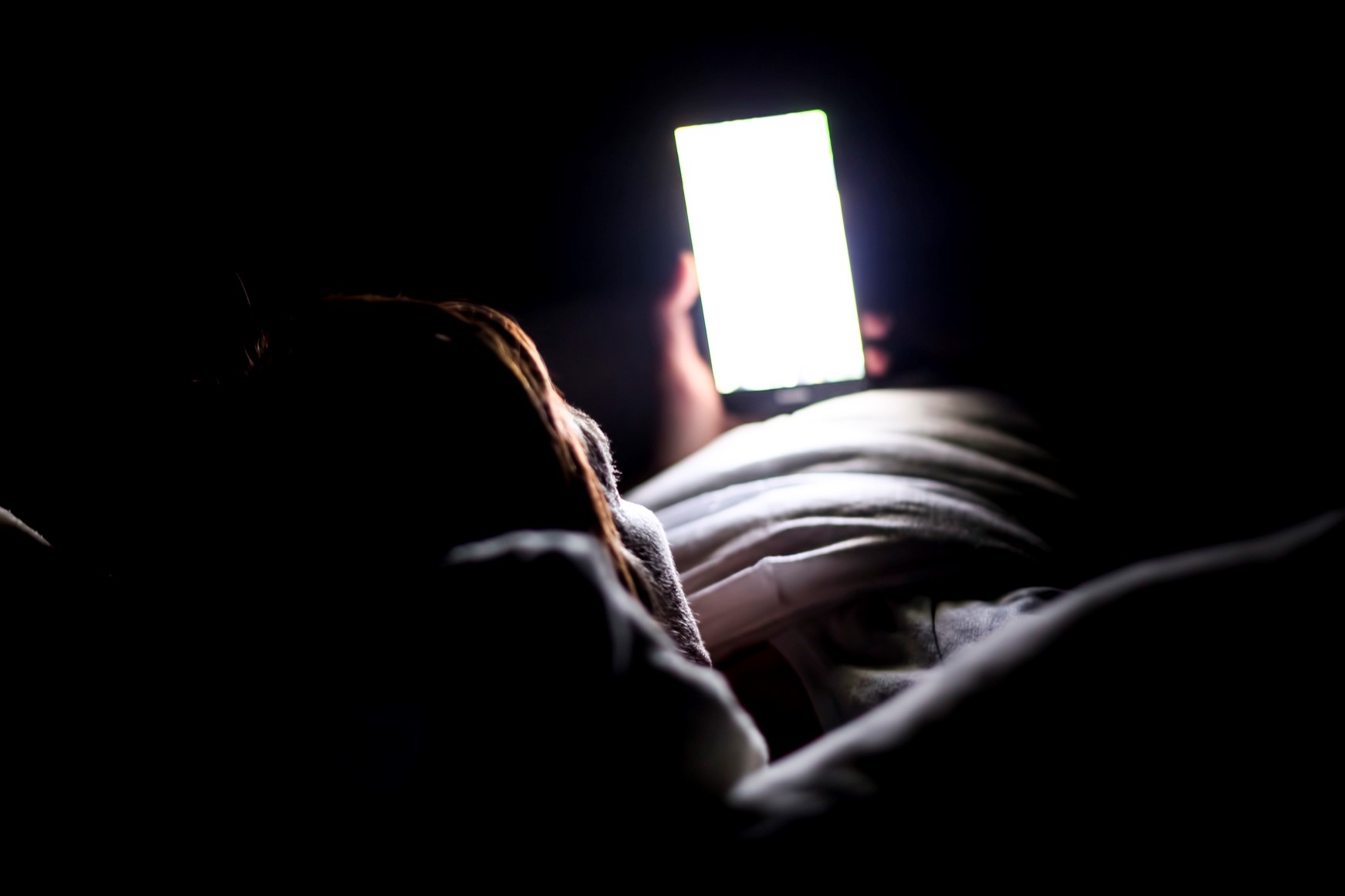Why ‘night mode’ on your phone might be keeping you awake

Most smartphones come equipped with ‘night mode’, which changes the screen to a warmer colour at night to assist with sleep, but new research suggests the science behind the technology is wrong.
Research out of the UK disproves the popular belief that blue light hinders sleep, and suggests using the night setting on phones may even hinder a person’s ability to fall asleep.
The system that tells the body clock what time of day it is works by measuring brightness, and this system is better at detecting light at shorter wavelengths, which are more prevalent in blue light.
Based on this, scientists up until now believed swapping blue light for warmer light would reduce stimulation and promote sleep.
“What we’ve found with our new research is that, actually, the biological machinery we use to detect colour, so that’s the cone cells in our eyes, are also involved in regulating the body clock,” Dr Tim Brown from The University of Manchester, who led the research, told 3AW’s Kate and Quarters.
“Actually, it’s the blue colour signals supplied by the system that tell the body clock it’s night time.
“So when you change the colour of the screen you’re sending mixed messages.”
Dr Brown said there is no evidence night mode on phones helps at all.
“There’s really no clear evidence that changing the colour of the screens to make them more yellow, which is what people are doing at the moment, is a sensible thing to do, so we’d definitely advise against that,” he said.
The best thing you can do to reduce the impact screen time has on your ability to sleep is reducing light exposure at night, but this is often impractical.
“We suggest simply reduce the brightness of the screens as much as possible, or reduce the brightness of the lights around you,” Dr Brown said.
If that’s not possible, get more sunlight in the morning!
“That has the effect of helping to shift your body clock earlier.”
Press PLAY below for more.
Image: mikroman6















